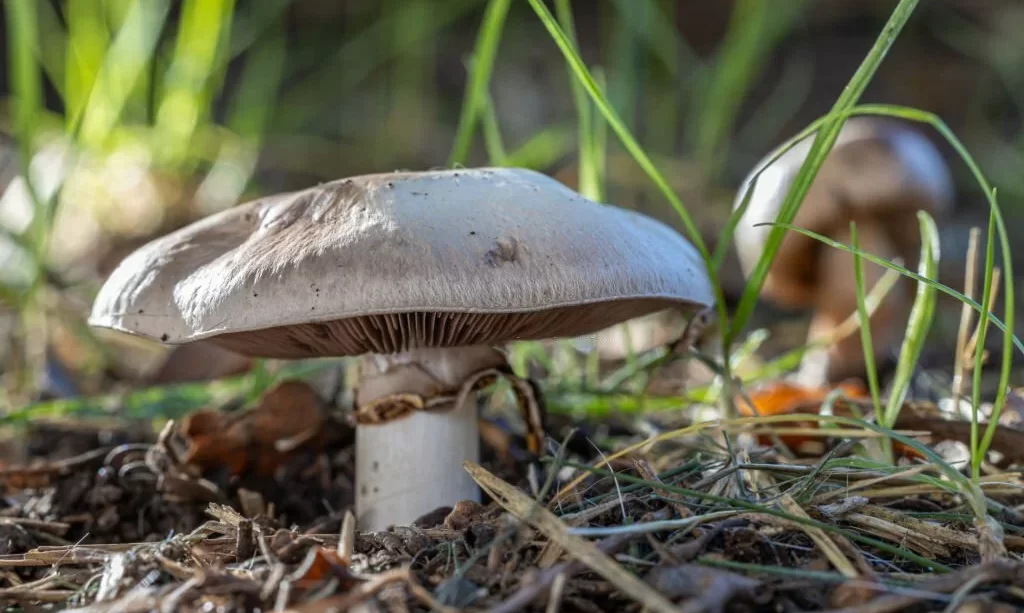Embarking on the journey of growing portabella mushrooms brings the satisfaction of cultivating a flavorful and versatile fungi right at home. Portabellas, known for their rich taste and meaty texture, offer a rewarding experience for both novice and seasoned gardeners. In this guide, we’ll explore the steps to nurture these delectable mushrooms, turning your space into a mini mushroom haven.
- Grow your own portobello mushrooms and get involved with an amazing world of fungi.
Gathering Materials
To set the stage for a successful portabella cultivation, gather the essential materials. Start with quality portabella mushroom spores or consider using a ready-made kit for convenience. Acquire the right growing medium, whether it’s a blend of compost or a specialized substrate designed for mushroom cultivation. Equip yourself with suitable growing containers or mushroom bags and have a water mister or spray bottle on hand for maintaining optimal moisture levels.
Preparing the Growing Environment
Creating an ideal environment is crucial for portabella mushroom growth. Choose a suitable location, whether it’s indoors or outdoors, keeping in mind the need for controlled conditions. Ensure the space is clean and sterilize containers and equipment to prevent contamination. Adjust humidity and temperature to mimic the natural habitat of portabellas. This meticulous preparation lays the foundation for a thriving mushroom-growing environment, setting the stage for successful cultivation.
Inoculation and Colonization
Once the stage is set, it’s time to initiate the growth process. Inoculate the chosen growing medium with portabella mushroom spores or use a kit for a straightforward approach. During the colonization phase, maintain optimal moisture levels to support mycelium growth. Watch for signs of the delicate white mycelium threads spreading, indicating a healthy colonization process. Patience is key during this stage, as the mycelium establishes itself within the growing medium.
Fruiting Conditions
As the mycelium takes hold, it’s time to transition to the fruiting stage. Adjust environmental conditions by fine-tuning temperature and humidity to induce fruiting. Whether you’re growing portabellas indoors or outdoors, providing the right lighting conditions is essential. Understand the pinning and fruiting process, recognizing the small pin-like formations that precede the development of the actual mushrooms. Creating an environment conducive to fruiting is pivotal for a bountiful harvest.
Harvesting Portabella Mushrooms
Harvesting is a rewarding culmination of your efforts. Identify the right time for harvesting by observing the caps as they fully open. Use gentle harvesting techniques to avoid damaging the fragile mushrooms. Once harvested, leave the base intact to allow for potential regrowth or additional flushes. Harvested portabellas can be enjoyed fresh or stored for later use, adding a delightful touch to your culinary endeavors. This phase marks the tangible rewards of your dedication to growing these flavorful mushrooms.
Care and Maintenance
Ensuring the continued health and productivity of your portabella mushrooms involves consistent care and maintenance. Regular misting is crucial to maintain the humidity levels essential for mushroom growth. Keep a watchful eye for potential pests and diseases, addressing them promptly to safeguard your crop. Additionally, be prepared to adjust environmental conditions as needed, providing a nurturing atmosphere for ongoing mushroom development. Diligent care during this phase contributes to the sustained success of your portabella cultivation.
Tips for Success
Optimizing your portabella mushroom growth involves incorporating some key tips. Pay attention to details such as maintaining cleanliness during the entire process to prevent contamination. Troubleshoot common issues promptly, and consider experimenting with different growing techniques to enhance flavors. Remember that the patience and care you invest will be reflected in the quality of your harvest. These insights will guide you towards a thriving and flavorful portabella mushroom cultivation experience.
Conclusion
In conclusion, growing portabella mushrooms is a gratifying venture that blends the art of gardening with the joy of culinary exploration. From gathering materials to harvesting the fruits of your labor, each step contributes to the satisfaction of cultivating your own flavorful mushrooms. Embrace the learning process, and let the rich taste and meaty texture of homegrown portabellas elevate your culinary creations. May your mushroom-growing journey be filled with success, delicious moments, and the pride of nurturing a crop from inception to harvest.




